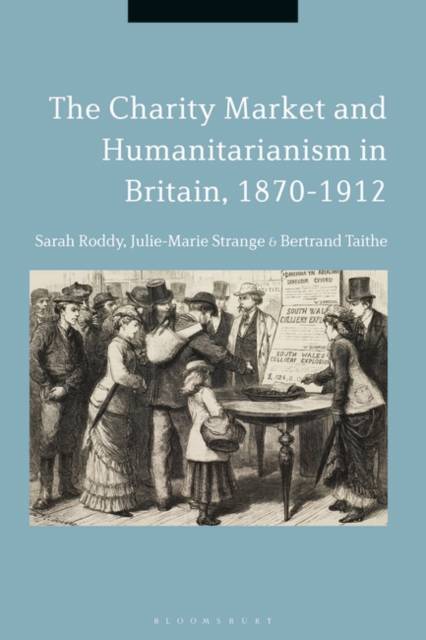
- Afhalen na 1 uur in een winkel met voorraad
- Gratis thuislevering in België vanaf € 30
- Ruim aanbod met 7 miljoen producten
- Afhalen na 1 uur in een winkel met voorraad
- Gratis thuislevering in België vanaf € 30
- Ruim aanbod met 7 miljoen producten
Zoeken
The Charity Market and Humanitarianism in Britain, 1870-1912
Sarah Roddy, Julie-Marie Strange, Bertrand Taithe
Hardcover | Engels
€ 271,45
+ 542 punten
Uitvoering
Omschrijving
This book examines the business of charity - including fundraising, marketing, branding, financial accountability and the nexus of benevolence, politics and capitalism - in Britain from the development of the British Red Cross in 1870 to 1912.
Whilst most studies focus on the distribution of charity, Sarah Roddy, Julie-Marie Strange and Bertrand Taithe look at the roots of the modern third sector, exploring how charities appropriated features more readily associated with commercial enterprises in order to compete and obtain money, manage and account for that money and monetize compassion. Drawing on a wide range of archival research from Charity Organization Societies, Wood Street Mission, Salvation Army, League of Help and Jewish Soup Kitchen, among many others, The Charity Market and Humanitarianism in Britain, 1870-1912 sheds new light on the history of philanthropy in the Victorian and Edwardian periods. This book is open access and available to read for FREE on Bloomsbury Collections: https: //www.bloomsburycollections.com/book/the-charity-market-and-humanitarianism-in-britain-1870-1912/Specificaties
Betrokkenen
- Auteur(s):
- Uitgeverij:
Inhoud
- Aantal bladzijden:
- 240
- Taal:
- Engels
Eigenschappen
- Productcode (EAN):
- 9781350057982
- Verschijningsdatum:
- 13/12/2018
- Uitvoering:
- Hardcover
- Formaat:
- Genaaid
- Afmetingen:
- 160 mm x 231 mm
- Gewicht:
- 476 g

Alleen bij Standaard Boekhandel
+ 542 punten op je klantenkaart van Standaard Boekhandel
Beoordelingen
We publiceren alleen reviews die voldoen aan de voorwaarden voor reviews. Bekijk onze voorwaarden voor reviews.







